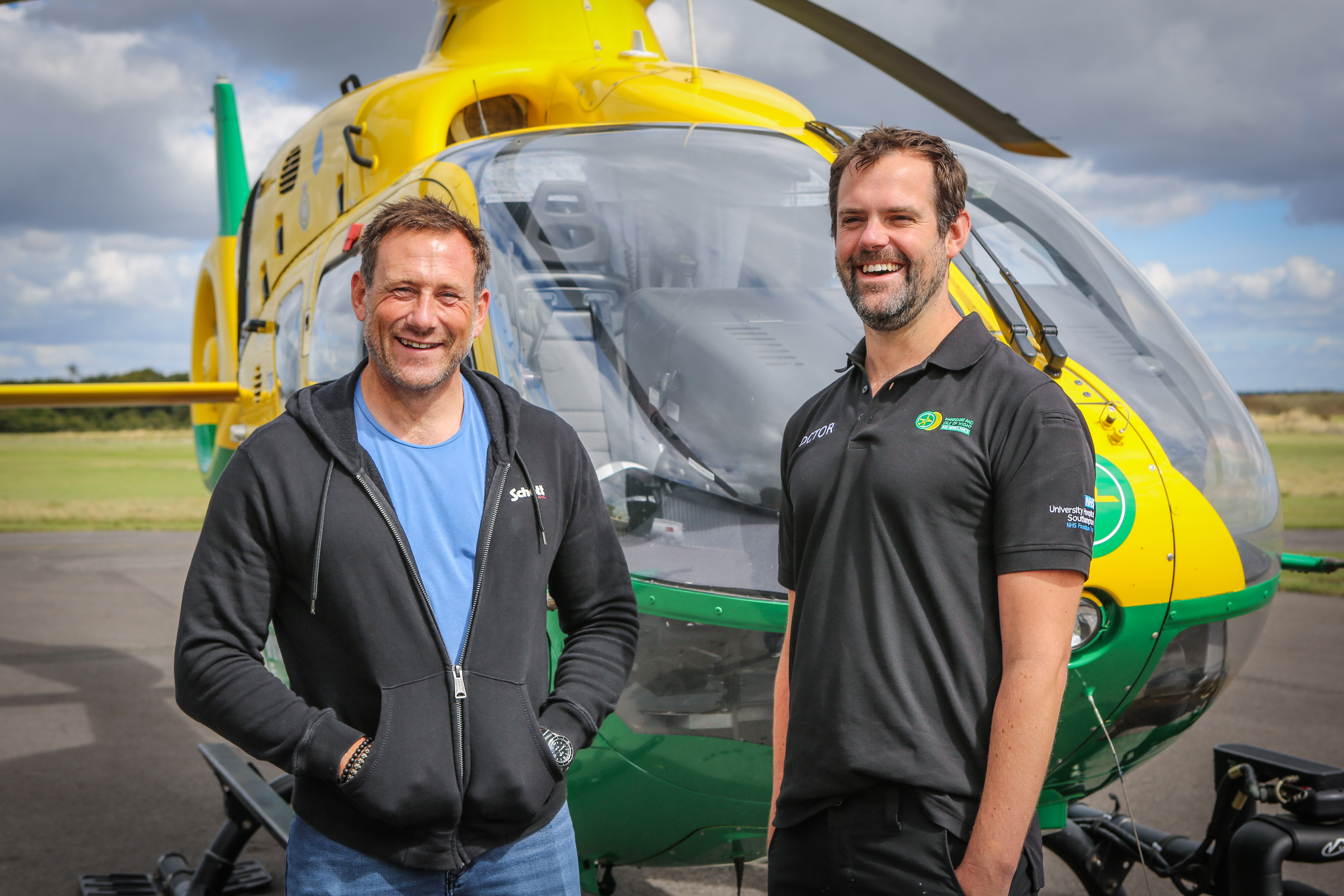Every day we attend life-changing incidents that can stay with our crew long after their shift has ended. Nothing can prepare them for what they might see or feel on scene. From cardiac calls to self-harm incidents. No two missions are the same. And no two individuals are the same.
Dr Matt Kerton, who has been flying with us since 2017, recognised the impact of this work on his colleagues’ mental welfare. He set about how he and the charity can help.
Together with Dr Kerton, in 2019, we launched an online Wellbeing Programme to monitor and enhance the mental health and wellbeing of our crew. For Time to Talk Day, we caught up with Dr Kerton, who led this initiative, to discuss the programme and what else the charity is doing.
What is Crew Care?
“Each member of the team has access to our crew care programme – this also allows them to make use of other support pages whenever they need to. This could be direct links to emergency help and the charities that support people in crisis, to services provided by our occupational health department at University Hospital Southampton.
“It’s important to help people self-reflect on their own mental health and recognise when they’re at risk of issues such as compassion fatigue and post-traumatic stress. Members of the team can do this through regular validated anonymous surveys. This allows the user to chart their progress and monitor an evidenced based objective score.
“When our staff need more support than the website provides, we have a fully funded self-referral system to a psychology service, which can cater for all aspects of psychological support our crews need. This is done on an anonymous basis to maintain full confidentiality.”

Jason Fox was “blown away by the Wellbeing Programme.”
Moving forward
“We have developed a team within our service that focuses on delivering a wellbeing package for all the crew members. The team, called ICE: inclusivity, crew care and engagement, focuses on how to make the organisation the best place to work for the team, understanding that they not only deal with the emotional stress of the jobs we see clinically but also having the same job-related stressors that all other professionals manage.
“It is key that we listen, respond, and grow as a team, by allowing a safe and supportive environment for people to work in.
“We encourage conversations within our team to allow people to share their feelings.”
Talking the talk and walking the walk
“We run regular team training days, focusing on softer skills and how best to look after ourselves and our colleagues’ mental and physical health. They have covered areas such as ‘exploring mentorship’, group facilitation training, and we have further sessions focusing on the human factors around good debriefing.
“We are currently developing a debriefing tool for our crews to use both on jobs and with our intensive training simulations.
“Debriefing is an important part of the job and involves all members of the critical care team, including our pilots.”
“The pilots are a huge part of our team, and they bring the weight of the aviation business who excel in human factors, debriefing and blameless culture. The combination of the medical and aviation side enhances the debriefs and the safety culture that is so important in both our respective areas of expertise – and it is a privilege to be part of.”


 Donate
Donate






